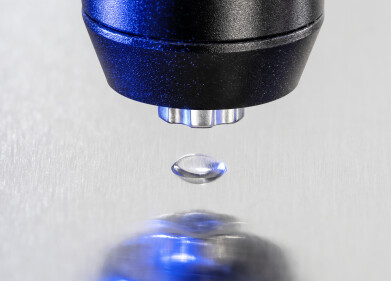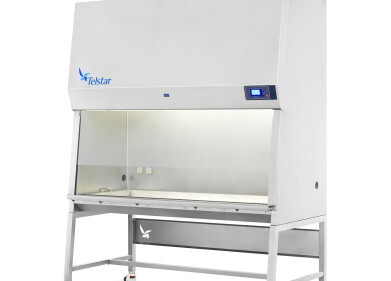-
 Many that suffer from cocaine addiction also suffer from addiction to alcohol, new study suggests both should be treated together
Many that suffer from cocaine addiction also suffer from addiction to alcohol, new study suggests both should be treated together
Laboratory Products
Epilepsy drug could help curb symptoms of alcohol and cocaine withdrawal
Jul 24 2013
A drug that is typically used for the treatment of epilepsy could be used to reduce the cravings felt by those suffering with both cocaine and alcohol addiction. The University of Pennsylvania School of Medicine has performed a study on whether topiramate has a positive effect on those struggling with both addictions.
Topiramate is traditionally used by those suffering with epilepsy and has recently been used as an aid for weight loss. Studies have previously been performed that showed it could be used as a treatment for people suffering with cocaine or alcohol addiction.
The new study has shown that is could be a suitable treatment for those who suffer with both at the same time. The study found that topiramate could help addicts achieve longer periods of abstinence by reducing cravings.
It is often the case that cocaine addiction comes hand-in-hand with alcohol addiction and so the study suggests that techniques should be developed in order to treat both addictions at the same time.
A 13-week trial was conducted on 170 participants, all of whom were addicted to both cocaine and alcohol. One test group received treatment with topiramate and the second group received placebos.
African American males that used crack cocaine made up the majority of the study's participants. The average of the entire test population was 45.
The study found that although topiramate seemed to have little to no affect on participants cocaine cravings, those that were taking the drug were more likely to remain in the study throughout the last three weeks and to stop using; when compared to the participants that received placebos.
In terms of alcohol addiction, topiramate seemed to reduce cravings and yet participants continued to drink the same amount as prior to the study.
It was found that participants displaying the most severe withdrawal symptoms, such as mood aggression, agitation and restless behaviour, appeared to benefit the most from the drug.
Doctor Kyle Kampman, professor of psychiatry at the Perelman school of Medicine said: “Cocaine dependence continues to be a significant public health concern in the United States and Europe. Drug counselling remains the treatment of choice, but many patients do not respond completely to it, so developing effective medications for treatment is a research priority.
"Based on the study’s results, this drug, plus cognitive behavioural therapy, may be a good option for people addicted to both alcohol and cocaine to help reduce their cocaine use.”
Digital Edition
International Labmate 49.6 - Sept 2024
September 2024
Chromatography Articles - HPLC gradient validation using non-invasive flowmeters Mass Spectrometry & Spectroscopy Articles - From R&D to QC, making NMR accessible for everyone: Putting NMR...
View all digital editions
Events
Oct 06 2024 Liverpool, UK
Oct 08 2024 Gothenburg, Sweden
Oct 09 2024 Birmingham, UK
Oct 09 2024 NEC, Birmingham, UK
Oct 15 2024 Milan, Italy


.jpg)














